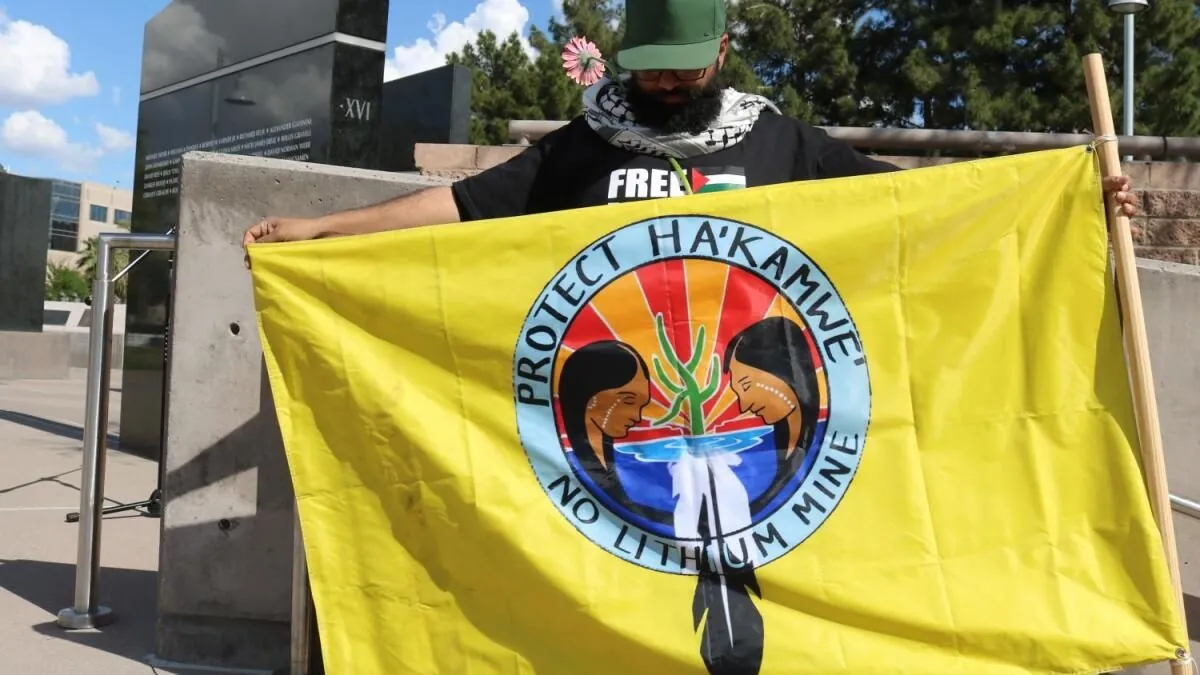In a significant legal battle unfolding in Arizona, the Hualapai Tribe is striving to safeguard their sacred lands from potential lithium exploration. The case, currently before a U.S. District Court, exemplifies the growing tension between renewable energy initiatives and the preservation of Native American cultural heritage.
The Hualapai Tribe, a federally recognized Native American tribe in Arizona, is seeking to extend a temporary ban on exploratory drilling for a lithium project. The site in question is situated midway between Phoenix and Las Vegas, encompassing lands the tribe has utilized for religious and cultural practices for centuries.
At the heart of the dispute are the Ha'Kamwe' springs, which hold profound spiritual significance for the Hualapai people. These warm springs have been a place of healing and prayer for generations, underscoring the cultural importance of the area to the tribe.
The legal challenge centers on allegations that the Bureau of Land Management, responsible for managing public lands in the United States, failed to adequately assess potential impacts on these sacred springs. This raises questions about the implementation of the National Historic Preservation Act of 1966 and the National Environmental Policy Act of 1970, both crucial in protecting historical sites and assessing environmental effects of federal actions.
Arizona Lithium Ltd., the company behind the exploration project, has plans for 131 drilling sites across nearly a square mile. The company argues that lithium exploration serves a significant public interest in addressing climate change, highlighting the mineral's critical role in manufacturing batteries for electric vehicles and renewable energy storage.
"Lithium exploration is a significant public interest as the nation strives to address climate change."
The case draws parallels to other lithium projects in the United States, such as the Thacker Pass mine in Nevada, which faced legal challenges from conservationists and tribes but ultimately proceeded. These situations underscore the complex balance between advancing green energy initiatives and respecting Native American lands and traditions.
The Hualapai Tribe contends that the noise, dust, vibrations, and visual effects from the project could irreparably alter the distinct and culturally significant setting of Ha'Kamwe' and the Big Sandy area. They argue that there is no substitute for these unique features essential to their culture.
Interestingly, the Navajo Transitional Energy Company, an entity of the Navajo Nation, announced its involvement in the project in 2022, highlighting the diverse perspectives within Native American communities regarding energy development.
As the legal proceedings continue, this case serves as a crucial test of the consultation process required by federal agencies when making decisions affecting Native American tribes. It also raises important questions about environmental justice and the disproportionate impact of development on certain communities.
The outcome of this case could have far-reaching implications for future green energy projects on or near Native American lands, potentially setting a precedent for how such conflicts are resolved in the ongoing transition to renewable energy sources.
